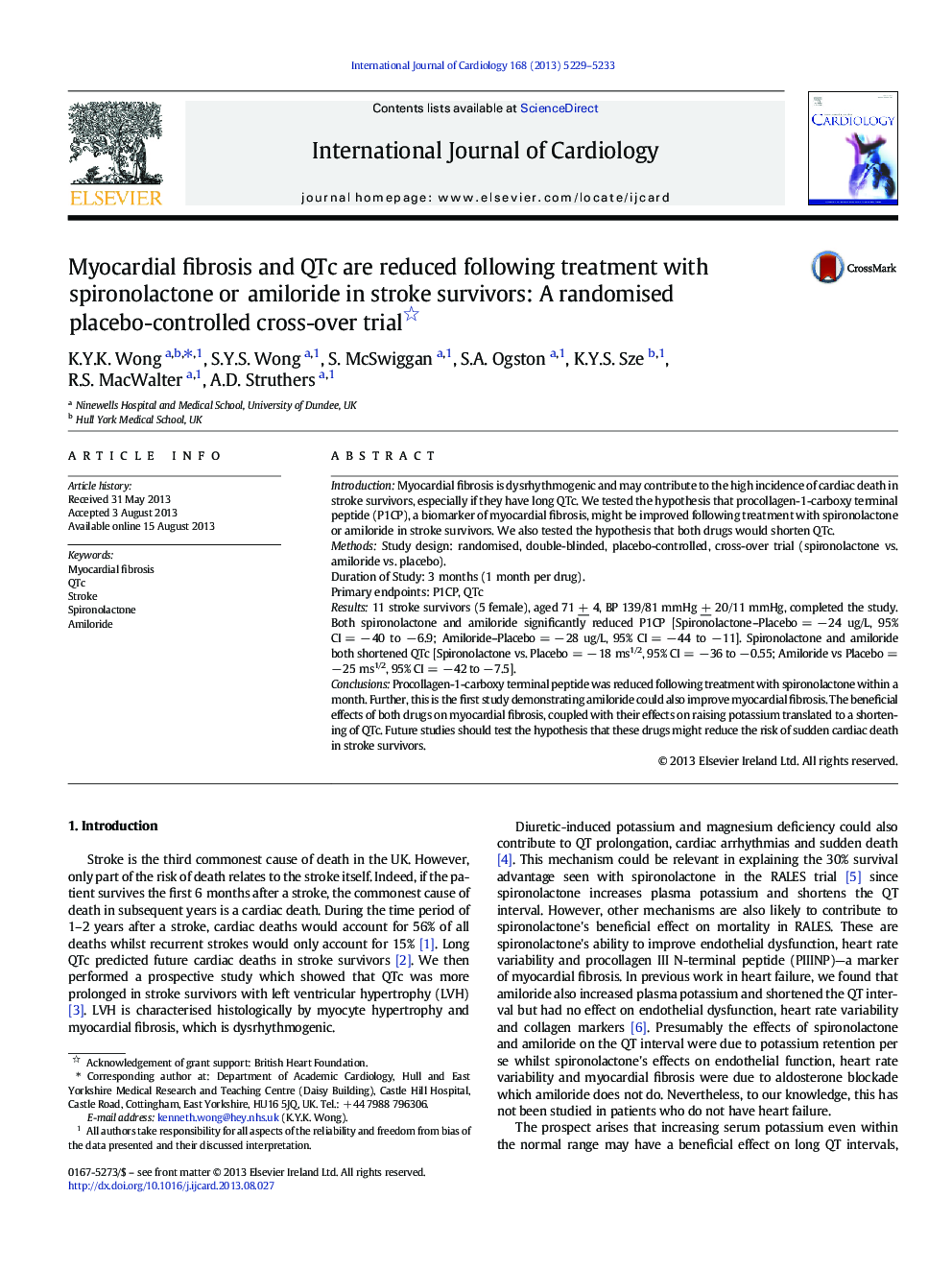| Article ID | Journal | Published Year | Pages | File Type |
|---|---|---|---|---|
| 5975054 | International Journal of Cardiology | 2013 | 5 Pages |
IntroductionMyocardial fibrosis is dysrhythmogenic and may contribute to the high incidence of cardiac death in stroke survivors, especially if they have long QTc. We tested the hypothesis that procollagen-1-carboxy terminal peptide (P1CP), a biomarker of myocardial fibrosis, might be improved following treatment with spironolactone or amiloride in stroke survivors. We also tested the hypothesis that both drugs would shorten QTc.MethodsStudy design: randomised, double-blinded, placebo-controlled, cross-over trial (spironolactone vs. amiloride vs. placebo).Duration of Study: 3 months (1 month per drug).Primary endpoints: P1CP, QTcResults11 stroke survivors (5 female), aged 71 + 4, BP 139/81 mmHg + 20/11 mmHg, completed the study. Both spironolactone and amiloride significantly reduced P1CP [Spironolactone-Placebo = â 24 ug/L, 95% CI = â 40 to â 6.9; Amiloride-Placebo = â 28 ug/L, 95% CI = â 44 to â 11]. Spironolactone and amiloride both shortened QTc [Spironolactone vs. Placebo = â 18 ms1/2, 95% CI = â 36 to â 0.55; Amiloride vs Placebo = â 25 ms1/2, 95% CI = â 42 to â 7.5].ConclusionsProcollagen-1-carboxy terminal peptide was reduced following treatment with spironolactone within a month. Further, this is the first study demonstrating amiloride could also improve myocardial fibrosis. The beneficial effects of both drugs on myocardial fibrosis, coupled with their effects on raising potassium translated to a shortening of QTc. Future studies should test the hypothesis that these drugs might reduce the risk of sudden cardiac death in stroke survivors.
